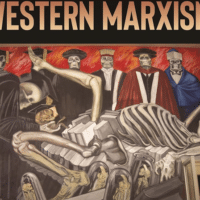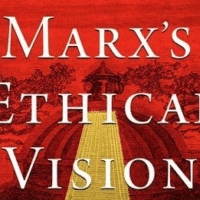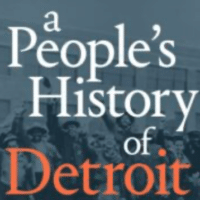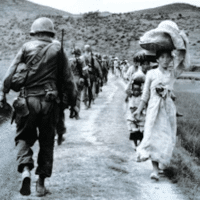-
Domenico Losurdo: “Western Marxism: How it was Born, How it Died, How it can be Reborn”
Thought-provoking and polemical as ever, the recent publication of Domenico Losurdo’s “Western Marxism: How it was Born, How it Died, How it can be Reborn”, finally provides English readers with access to the prolific Italian philosopher and militant’s penultimate book.
-
‘The Fire Boom’
In this excerpt from Mike Davis’s classic book ‘The Ecology of Fear’, he explores the tinderbox of the wealthy “Los Angeles frontiers” and the massive public resources dedicated to keep it from igniting.
-
The case against ‘Western’ Marxism
RICHARD CLARKE applauds the assertion that Western Marxism represents a withdrawal from action to change the world into the academy.
-
Tariq Ali: Memories of the struggle reloaded
Following the publication of Tariq Ali’s latest memoirs, he spoke to Michael Lavalette about the contrasting periods covered in his autobiographies and the prospects for the left today.
-
Tony McKenna: “Has Political Correctness Gone Mad? The Anatomy of a Right-Wing Conspiracy Theory” – Book Review
We are all familiar with the charge that some policy or decision is a case of ‘political correctness gone mad’, part of the rhetoric of the ‘culture wars’, but we may not have thought a great deal more about it.
-
Can a global history of humans be a people’s history?
In his new book, Alvin Finkel tells the story of the 99% who have constantly sought to live in a society of equals
-
John Bellamy Foster: “The Dialectics of Ecology: Socialism and Nature” – Book Review
How can we transcend the alienation of humanity and nature, and create a world of substantive equality and ecological sustainability?
-
“Marx’s Ethical Vision” – Book Review
There is much to say on behalf of Vanessa Christina Wills’ Marx’s Ethical Vision, which not only advances Marxist scholarship but takes a strong, well-founded position regarding some of the most vexing and significant questions confronting anyone who would grasp his philosophical thought.
-
“A People’s History of Detroit” – Book Review
Composing a history of Detroit is an exercise in tying together many economic and social trends within a microcosm of class, race, and fraught politics. Mark Jay and Philip Conklin’s work discusses the 20th-century history of the city to offer a documentation of class struggle seen through the industrialization of the city in the early 20th century, the racial tensions of the post-World War II period, and, finally, the simultaneous processes of decay and development in the last three decades.
-
Brett Christophers on our growing ‘asset-manager society’
Many people now live in homes and rely on infrastructure that are owned by pension funds, insurance companies, and banks.
-
To think with, across and through Marx
My engagement with Marx in this book is ultimately an act of critical dialogue–of thinking with as well as across and through his texts toward multiple unforeseen destinations.
-
BAR Book Forum: George Lipsitz’s Book, “The Danger Zone is Everywhere”
George Lipsitz: The Danger Zone is Everywhere focuses on how unjust access to housing and health skews opportunities and life chances along racial lines. It argues that housing insecurity and poor health are key components of an unjust, destructive and deadly racial order. The book shows how the tort model of injury in law and the biomedical model of health work to occlude structural racism by treating socially produced injuries as personal problems.
-
“Loot: How Israel Stole Palestinian Property” – book review
Adam Raz has made an important addition to the study of the ethnic cleansing of Palestine in this detailed volume containing original research.
-
“Mixing Pop and Politics, A Marxist History of Popular Music” – book review
Toby Manning’s history of popular music in its historical context is a rich and rewarding exploration of the politics of music, finds Charles Marriott.
-
‘The Visiting Emperors’: How corporations conquered the world
The former Labour Party leader’s new foreword to Claire Provost and Matt Kennard’s book ‘Silent Coup’ outlines his thoughts on the growing power of the private sector over society.
-
Another war diary entry
Critical cultural historical perspective is not easy to obtain.
-
How U.S. union leaders worked with the CIA to undermine democracy
Soon after Israel launched its genocidal war in Gaza with the full support of the U.S. government, opposition emerged to the Biden administration in a place that many professional political commentators found confounding: within U.S. trade unions.
-
“Beauvoir and Belle: A Black Feminist Critique of The Second Sex” – Book Review
Belle and Beauvoir proves to be a much needed contribution on a neglected topic. Importantly, it comes at a time when theorists are calling for both greater conceptual clarity on how systems like capitalism and racism interact as well a return to the thought of Black women Marxists and communists.
-
Behind India’s Iron Curtain
In this week in 2019, India enforced a communications blackout in Jammu and Kashmir. A new writing project chronicles the crackdown which followed and how its techniques of oppression were borrowed from Israel’s occupation of Palestine.
-
Why Ilan Pappe’s new book on the Israel lobby is a must-read
Few are better qualified to challenge the official orthodoxy that stifles any discussion of this topic.



















